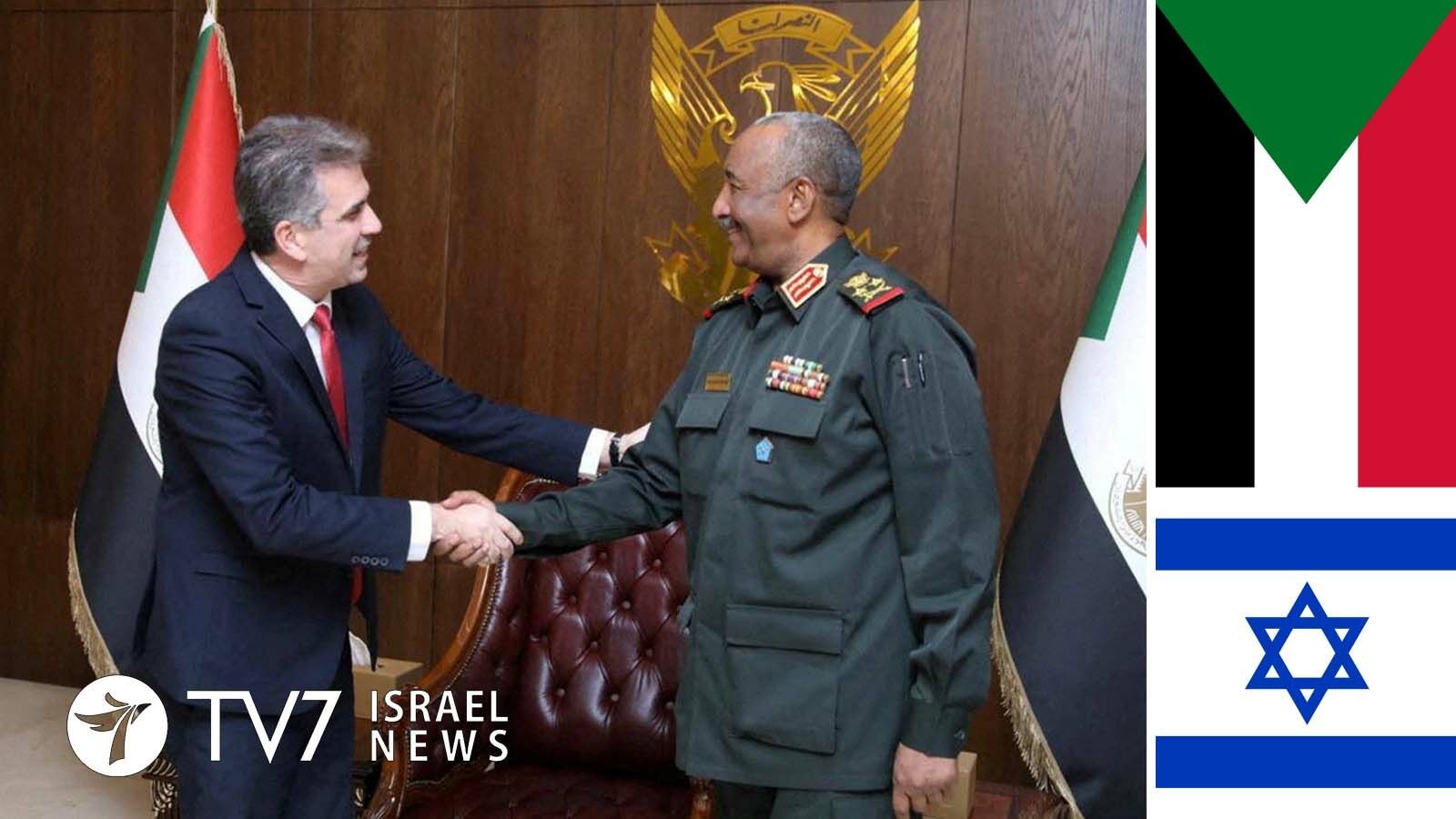The two countries finalized the deal during a visit by Israeli Foreign Minister Eli Cohen to Khartoum
By Erin Viner
Despite a series of exchanges by officials in recent years, Minister Cohen’s trip was the first by an Israeli official acknowledged by Sudanese authorities.
Following the forging of political and economic ties between Washington and Khartoum, then-US President Donald Trump announced in October 2020 that Sudan would become the third Arab state to normalize ties with Israel as part of the Abraham Accords.
The US also removed Sudan from its list of State Sponsor of Terrorism in December, after Khartoum also agreed to pay $335 million in compensation to victims of the 1998 terrorist bombings of the US embassies in Tanzania and Kenya. Sudan was accused of not only assisting the al Qaeda operatives who carried out the twin attacks, but of having sheltered the group’s notorious leader Osama bin Laden.
Sudan’s Foreign Ministry confirmed that a deal to “move forward towards normalizing relations between the two countries” was agreed upon during Cohen’s most recent visit.
The office of Sudan’s ruling Sovereign Council chief, General Abdel Fattah al-Burhan released a statement saying he and the Israeli Foreign Minister discussed deepening cooperation in security and military matters as well as agriculture, energy, health, water and education.
The Sudanese military, which has ruled the Northeast African Republic since toppling former leader Omar al-Bashir from power in a April 2019 coup, maintains it will hand over power to a civilian government following ongoing talks. Bashir’s ousting ended ending three decades of rule under Islamic law, which imposed crucifixion, death by stoning and flogging as legal punishment. Currently, no official state religion has not been declared in the country.
“During the visit, which was made with the consent of the United States, the parties finalized the text of the agreement,” said an Israeli Foreign Ministry statement, adding that the “signing ceremony is expected to take place after the transfer of power in Sudan to a civilian government that will be established as part of the ongoing transition process in the country.”
The deal with Israel may be faced with domestic opposition. Burhan’s own deputy, General Mohamed Hamdan Dagalo, was cited by the SUNA state news agency as saying he had no knowledge of the visit and did not meet the Israeli delegation, while civilian groups have previously stated any such an agreement must be ratified by a transitional parliament that has yet to be formed.
Cohen remarked after returning from Khartoum has long been remembered by the Jewish State and its supporters as the city where the Arab League notoriously proclaimed its “The Three No’s Resolution” in 1967 rejecting recognition, peace and negotiations with Israel. Now however, he said, “We are building a new reality with the Sudanese, in which the ‘Three Nos’ will become the ‘Three Yesses.'”
Noting that Sudan fought alongside Arab armies against the State of Israel during its 1948 War, the 1967 Six Day War and also facilitated transfer of Iranian weapons to the Hamas and Hezbollah terror groups – allegedly targeted by IDF aerial strikes, Minister Cohen stressed that the signing of a normalization of ties will serve both countries, while strengthening security in Israel and the region.
Following formalization of the deal, Israel will assist Sudan in its development in the agricultural, water, health and other sectors.
Foreign Minister Cohen thanked Prime Minister Benjamin Netanyahu, who has long set the expansion of Israel’s ties in Africa as a foreign policy goal, and considered as architect of the Sudan agreement. He also thanked US President Joe Biden, Secretary of State Antony Blinken, National Security Advisor Jake Sullivan and Ambassador to Israel Tom Nides for participating in the historic development.
The breakthrough with Sudan comes just after the African Republic of Chad established its first ever embassy in Israel.
